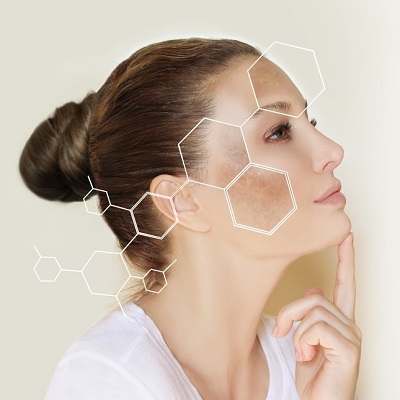
Many individuals struggle with pigment-related dark spots. Moreover, these are melasma or hyperpigmentation. Furthermore, they change the skin tone and color and make it darker. However, those suffering from disorders want a permanent solution to this issue. Hence, Can Pigmentation Be Removed Permanently in Islamabad? Read this blog for the answer.
Understanding Pigmentation:
Melanin controls your skin’s pigment, which is what defines its hue. Melanin either produced too much or insufficiently causes pigment issues that result in dark spots or patches on the face. Among the many typical forms of color issues are
Dark patches known as sunspots show up on your skin after extended sun exposure. Moreover, your face will show large, black patches if you have melasma. However, hormonal changes—such as those brought on by pregnancy or birth control pills—can aggravate this disorder.
Treatment Options for Pigmentation:
People often use topical therapies as a first line of protection against color issues. Among them are:
Topical Treatments:
Topical treatments are commonly effective as the first line of defense against pigmentation issues. These include:
- Hydroquinone: It tones skin by halting melanin synthesis. Moreover, it treats various skin discoloration types. However, use under a doctor’s supervision to avoid adverse effects.
- Retinoids: These accelerate cell turnover and prevent melanin accumulation. In addition, they lighten dark spots and smooth skin. However, it may dry out or irritate the skin.
- Vitamin C brightens skin, eliminates dark spots, and improves skin structure and tone. Hence, helps halt melanin synthesis. Similarly, regular use of vitamin C serums promotes homogeneous skin tone.
Chemical peels:
An aesthetician will apply a chemical solution to the face during a chemical peel, which removes the upper layers of skin. This approach helps one solve color issues by:
- The chemical solution aids in removing the top layer of skin, therefore revealing more even-colored younger skin.
- Chemical peels induce new skin growth, enhancing the skin’s tone and texture. This may make normal coloration and pigment patches seem less obvious.
- Chemical peels come in mild, medium, and deep forms. The degree of the discoloration and your kind of skin will determine which peel you should employ.
Laser Treatments:
Laser treatments break down melanin in the skin. Among the most often used kinds are these:
- Fractional Lasers: The little holes created by fractional lasers in the skin increase the synthesis of collagen and elastin. As the face’s structure improves, color declines in line with this. Deep pigmentation and an overall younger-looking face may be achieved using fractional lasers.
- Q-Switched Lasers: Made to target melanin particles in the skin and break down them, Q-Switched Lasers are effective in addressing color issues that won’t go away. This kind of laser therapy may significantly alter the tone of your skin.
Microneedling:
Using a device with tiny needles, microneedling creates under control small holes in the skin. More collagen produced by this process helps the body lighten the skin. Usually, the finest outcomes come from many sessions; after that, you can feel some mild heat or swelling.
Can Pigmentation Be Removed Permanently in Islamabad?
However, there are a lot of treatment options available to cure pigmentation. However, Can Pigmentation Be Removed Permanently in Islamabad? Hence, it might be difficult to eliminate. Still, some techniques can assist considerably in reducing or managing pigmentation. The effectiveness of medications varies in several respects, including:
- Melasma and certain other pigment types might be more difficult to cure and may call for several therapy approaches.
- Getting and maintaining results depends on routinely using products and following a skin care regimen.
- Treating the origin of color—such as reducing sun exposure or managing hormonal changes—will help to provide long-lasting results.
- Every day usage of a broad-spectrum sunscreen with a high SPF helps to prevent additional discoloration and protect the skin from UV damage.
Final Verdict:
In essence, treatments for pigment may greatly improve the appearance of skin; yet, it can be difficult to permanently eliminate color from skin. Chemical peels, microneedling, cosmetic treatments, and laser treatments are among the many options that might assist lower coloration. To manage color over time, however, the most crucial things to perform are consistent maintenance and protection.
If you want tailored advice and assistance in developing the best strategy for your particular circumstances, see an aesthetician at Dynamic Clinic PK.




